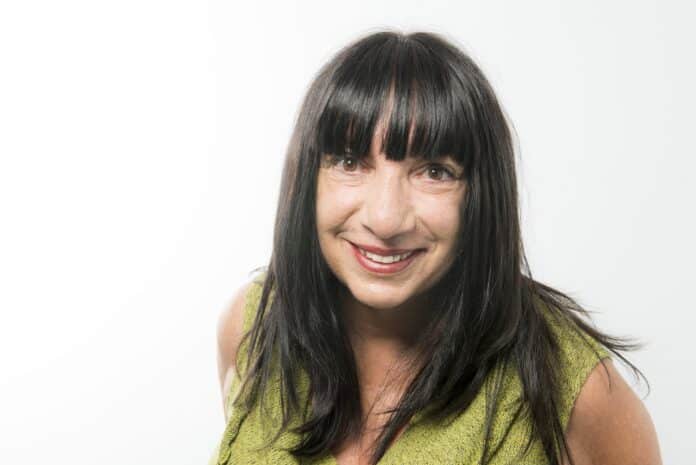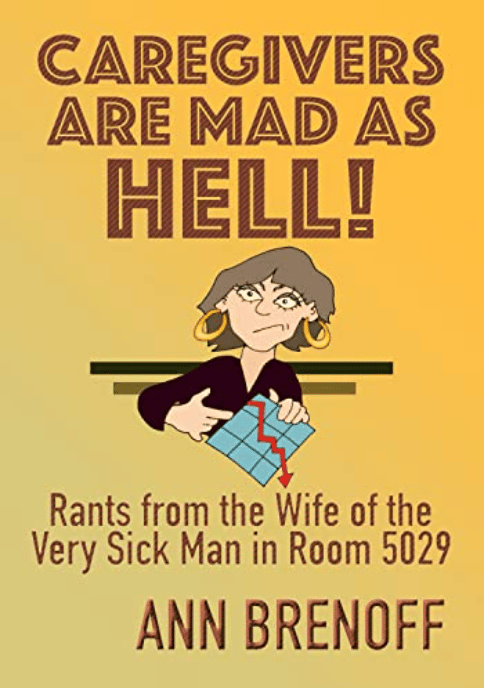
We’re all going to die. And most of us will get very sick before we do; requiring someone to take care of us. Usually that someone is a family member likely not qualified to act as nurse. This is what happened to Ann Brenoff and what’s currently happening to 53 million Americans thrown into the difficult role of caregiver. Brenoff chronicles her onerous experience and frustrations with a touch of humor in her book “Caregivers Are Mad As Hell! Rants from the Very Sick Man in Room 5029.”
In 2016, Brenoff was working while raising two kids with her husband, who suddenly went into kidney failure. He had been a constant presence at all of his kids’ soccer matches and performances at Webster Elementary and Malibu High School. Then, abruptly, he became too ill to take care of them. Suddenly Brenoff, with no experience, became his full-time caregiver. She was a writer at the Los Angeles Times and then HuffPost when thrust into the role of de facto nurse and healthcare manager.

“The healthcare system today relies on family members to step up and take care of their loved ones, whether it’s a parent who can’t manage alone or a spouse,” Brenoff said. All of her education did not prepare her for the strenuous and emotionally taxing job ahead. Hiring help is cost prohibitive to most and not preferred for Brenoff, who said the average home health aide turnover “is 100 percent, meaning every job turns over at least once a year.”
On a practical level, she had to physically move her spouse, who outweighed her, to get him to dialysis three times a week; each four-hour session was an hour drive from their Topanga home.
“He couldn’t be in there himself. I had to park and walk him in,” Brenoff said.
It was the little things she found exasperating, like finding parking, helping him walk, spending hours on hold with insurance companies, and waiting for doctors, all while her kids would text to find out who would pick them up from soccer practice. “There’s no one to help you,” she said.
When Brenoff’s husband was often hospitalized she had to “farm my kids out” in order for them to get to MHS. This went on for two years. The stress was intense. “I was dancing on my last nerve,” was how she described it.
“I was a caregiver six years ago. Nothing has changed,” Brenoff said. “The majority of caregivers are millennials. They’re under 35. They’re caring for parents, grandparents because there’s nobody else in the system to do it. Medicare doesn’t pay for a nursing home stay after 21 days and only with a direct discharge from a hospital. On the 22nd day, something that skilled nurses were doing, you have to do.”
Those tasks can include changing catheters, administering shots, and wound care. At one point, healthcare providers suggested home dialysis which would have required Brenoff to operate highly technical, live-saving medical equipment that typically professionals oversee at clinics.
“Terrible things can happen. This is why you do it at a semi-hospital setting,” she explained. “They want to paint a rosy picture of what you have to do, but toward the end I couldn’t leave him alone even to get groceries.”
Brenoff’s responsibilities didn’t leave her time for her own medical appointments; missing two-years worth. She cited a statistic: “40-percent of family caregivers to dementia sufferers die before their patients.”
Well-meaning friends would often offer help or advice, like making a gratitude list. Someone gave her a coloring book for stress relief.
“I have the ability to look at the situation and laugh at the absurdity,” the writer commented. “One thing people say to caregivers that they really hate is, ‘God doesn’t give you more than you have the strength for.’ To which I’d say, ‘She made a big mistake.’ It’s OK for family caregivers to be angry. They don’t have to buy into the BS that this is rewarding. It’s not.”
The book also discusses financial implications caregivers face, including lost income, paying for supplies, and reentering the workforce.
Brenoff eventually was widowed, but she says, “Life can have a happy ending.”
“I felt I lost my husband in small bites over the course of a couple years,” she said. “I wanted to rebuild my life.”
Brenoff did just that. While writing an article on internet romance scams she met the man who recently became her husband.
“I’m shocked at how happy I am,” she said. “If you had told me in the midst of caregiving that one day I would feel this good, I wouldn’t have believed you.”
The book is available on Amazon.
